Bexar Service Area
Mouseover the map for a quick overview of the Texas Community Plans
About Texas Community Plans
For over 20 years, the Texas community health plans have been committed partners to the state’s Medicaid program. Our plans are part of the intrinsic character of the program as it was intentionally designed. In 1997, as managed care was integrated into our Medicaid service delivery system, Texas’s elected officials chose to prioritize the inclusion of the provider-owned non-profit and hospital district health plans. These local health plans were intended to be and are responsive to community needs, conditions and priorities. In fact, the reason for establishing 13 distinct Service Areas was to ensure that the Medicaid program engaged Providers and their strengths within local community Service Areas.
The importance of Provider owned plans to our state’s program cannot be overstated. Community plans have been the glue that has kept Texas Providers engaged with the Medicaid program — to the benefit of the entire program and Members. All plan types, including those that are based nationally, benefit from a participating Provider base. Strong Provider networks rest on Provider willingness to serve Medicaid clients.
Further evidence of the importance of the community health plans and the level of commitment they bring to Texas Medicaid is available in this report. Here, we highlight each plan. Their level of service, commitment to Providers, financial commitment and reinvestment, and hospital and clinical care integration demonstrate why Texas’s community health plans and the systems in which they operate form the foundation of our state’s public health system.
Billions in Charitable
Contributions
Employed Texans
Members Served
Millions “Profits” Reinvested in Texas communities
![]()
Introduction
Community First Health Plan (Community First) is a non-profit, community managed care organization committed to serving Bexar and 7 surrounding counties. Community First is the region’s only locally-owned and operated, not-for-profit health insurer, headquartered in San Antonio.
- The MCO employees 375 Texans and serves 140,000 Medicaid members
- This includes 109,174 STAR Members and 18,773 CHIP Members.
Community First is part of the University Health System, which has over 9,000 employees. The system encompasses the more than two dozen San Antonio locations, the Level 1 Trauma Center, the primary teaching facility for UT Health San Antonio, and the highest designated pediatric trauma center in the region. They have more than 1,000 attending and resident physicians. CFHP was established in 1995 by the University Health System and is committed to providing great health care benefits backed by outstanding services to the citizens of South Texas. They provide affordable health coverage for families, children, expectant mothers, and children with special needs.
Financial Reinvestment and Other Contributions
Community First has a strong history of reinvesting its dollars in its Providers, Members and the Community:
- Made use of a generous $75,000 grant from Niagara Cares in partnership with the Starlight Foundation resulted in Activity Zones on the pediatric floor. This created a more kid friendly and comfortable setting and provided play equipment for patients to improve patient experience and healing outcomes. These Activity Zones include: Arts and Crafts areas, Movie Theatre and Performance Area, a Medical Play Area, and a Games Area.
- Carelink cost share program provides financial assistance for its 35,000 members. This program utilized case management to focus on members with high costs or high utilization of services.
- Community First approved funds for innovative programs and projects strategically aligned with the system’s priority areas. Additionally, donors gave $1.7 million to support patient-centered, compassionate care such as cancer support, respiratory therapy, scholarships, and enhancements to Pediatric Palliative Care program.
- The health plan participates in a Joint Opioid Task Force expanded access to naloxone for the treatment of overdoses, which has shown to reduce rates of death due to opioid overdoses. They piloted the 24-hour Opioid Drop-In Center and created new avenues for education and resource development for Clinical Providers.
Value and Quality
Community First is ranked as a 4 Star Plan for adults. They have the same 4 Star scores as competitors Amerigroup and Superior HealthPlan in overall health plan quality. In several CHIP Categories, Community First is ranked with the highest performance possible. Community First is an NCQA Accredited health plan and has NCQA Distinction for Long-Term Services and Supports.
They have established a Provider Immunization Incentive that helps the community stay healthy during the pandemic. Their goal is that 100% of Members are up to date on their annual wellness and flu vaccinations. Providers receive incentives of $50 for administrating wellness vaccines to each eligible Member and $25 for administration of flu vaccines in each visit.
Additionally, they have been educating Members about best health practices and avoiding the flu. This campaign includes messaging surrounding vaccines, hand washing, and preventative measures. The campaign mediums include:
- Member postcards
- Member newsletters
- Facebook and Instagram posts
- Educational posters in Provider offices depicting handwashing and vaccines
- Educational coloring sheets for children on masks and social distancing
- Healthwise notices to Members
COVID-19 Response
In 2020, the city of San Antonio and surrounding counties has been extremely affected by Covid-19. Community First responded with their characteristic community care and agile, flexible response in this time of unprecedented need.
CFHP came to the aid of their members by:
- Setting up citywide All Day Testing in the City Coliseum
- Operating downtown clinics with extended hours for testing
- Increasing telehealth options
They supported Providers by quickly meeting state mandates to pay providers immediately to minimize pandemic impact on their operations. They invested in the results testing device that increases test results turnaround from 250 to 1,000 in a 24-hour span. The Health Plan network management team provided resources and referral to information and a care package to all network Providers with sanitizers, face shields, and other Covid safety support.
Community Commitment
This plan is deeply ingratiated into its community, as reflected in their ongoing top tier treatment of providers and members.
Their collaboration and sponsorship efforts this year have included sponsorship for 8 different specialty collaborative programs:
- San Antonio Food Bank: $15K Sponsorship that provided 4 18-wheeler trucks full of food to over 2,000 families. CFHP recorded a highlight video of the event at Toyota Field.
- Any Baby Can: $10K Sponsorship. This program has seen a 250% increase in program need due to Covid-19, so this was an important donation that benefits families through case management, diaper banks, parent training, special needs care, and food drives including baby formula.
- Gabriella’s Smile Foundation: $5K Sponsorship. CFHP paired with HEB Grocery Store to sponsor the family residence program that lodges families traveling to San Antonio for their child’s cancer treatment.
- Eva’s Heroes Virtual Summer Camp Program: $25K Sponsorship for a themed summer program lasting seven weeks that special needs children get to attend. This enriches their lives through peer interaction, life skills, self-esteem, and enhanced independence.
- Hemisfair Conservancy: Story Time for Pedi Patients at Methodist Children’s Hospital. This created opportunities for independence and creativity in hospitalized children through digital and play-based programming via the Twitch Platform.
- UHS COVID Patient Safe Discharge Initiative: CFHP worked to provide UHS Care Coordination team with items that will help recovered Covid patients with safe discharge.
- Office of City Councilman Roberto C. Treviño, District 1 & Libraries Without Borders: Distance Learning Technology Sponsorship. CFHP helped refurbish 50 laptops for District 1 students to have access to distance learning in the 2021 school year and gave branded face masks for student use.
- Fiesta Youth (LGBTQ Organization for Youth 12-18 yrs. old): Provided laptops to bridge digital divide for after school programming for LGBTQ students. Working with Goodwill and Digital Wish to provide materials to students.
They also engage in a community campaign called Stop the Bleed that works to save lives in an emergency. The Stop the Bleed effort entails the University Health System’s trauma team teaching people skills regarding slowing life-threatening blood loss until help arrives. The University Health System’s trauma team has conducted educational sessions through community group training, at businesses, schools, and in collaboration with the Southwest Texas Regional Advisory Council.
Service Area:
Bexar Service Area:
Counties: Atascosa, Bandera, Bexar, Comal, Guadalupe, Kendall, Medina, Wilson
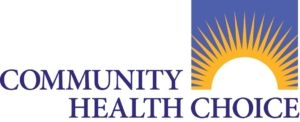
Introduction
Community Health Choice Inc.(CHC) is a non-profit, community managed care organization committed to serving Harris and surrounding Counties in Southeast Texas. The MCO serves 313,580 Medicaid and CHIP Members. CHC is part of the public hospital Harris Health System, which has over 9,371 employees. The system encompasses 10,000 doctors, 77 hospitals and over 800 ancillary Providers. Founded in 1997 with a handful of employees they have expanded to a team of 725 Texans serving Texans.
CHC’s parent system Harris Health, is a community-focused academic healthcare system dedicated to improving the health of those most in need in Harris County through quality care delivery, coordination of care, and education. Notably, Harris Health is a recipient of the prestigious National Committee for Quality Assurance designation for its patient centered medical homes.
Financial Reinvestment and Other Contributions
CHC has a strong history of reinvesting its dollars in its Providers, Members and the Community:
- They have an impressive range of outpatient and ambulatory care services, ranging from 9 homeless shelter clinics, 5 same day clinics, dialysis centers, outpatient pharmacies, community health centers, geriatric assessment centers, mobile immunization programs, school-based clinics, and the nation’s first freestanding HIV/AIDs treatment center.
- Harris Health System provided its communities with $720 Million in charity care during Fiscal Year 2020. They had a total net revenue of $1.7 Billion.
- CHC contributed $400,000 in community investment, which broke down in the following ways:
- $100,000 to sponsorships that serve children and pregnant women
- $100,000 for unexpected expenses for members and clinics
- $100,000 for other buckets such as diabetes
$80,000 for STAR+PLUS community based organizations that serve populations such as aged and disabled, Individuals with Developmental Disability (IDD), and those with Severe and Persistent Mental Illness diagnoses (SPMI).
Value and Quality
Community Health Choice wants to see Members succeed in everything they do, and demonstrates it care for their health and overall well-being with its initiatives and priorities. They seek to better their community by assisting those Members that need additional care, using initiatives such as recently launched pilot programs that benefit children and pregnant women in rural areas. They offer childbirth classes, health education, and programs for asthma, diabetes, and high-risk pregnancy.
In Houston, they lead the way on the importance of employment to long term health with a job training and educational scholarship program called CareerReady.
- CareerReady connects pregnant women and high school seniors with the resources they need to pursue an education, find a career path, and set the foundation to provide for their families for a lifetime.
- Women get a career coach, take classes, and receive a scholarship.
- These job readiness programs for pregnant Members create a trackable metric of pre-natal care, post-partum visits, and children immunizations.
CHC pursues educational efforts such as kindergarten readiness, particularly in underserved areas. They sponsored all elementary schools in Jefferson County with access to learning program GoNoodle.
- This underserved Jefferson County area includes 28 campuses.
- GoNoodle’s online movement videos get children exercising, stretching, and practicing mindfulness, all performed next to their desks.
- These movement tools helps channel classroom energy, and boost cognitive processing, as well as improves focus and academic performance.
- This program with its virtual tools also includes an educational component for parents on how to do remote learning.
CHC is accredited by the Utilization Review Accreditation Commission (URAC) for its health plan operations.
COVID-19 Response
CHC responded with their characteristic community focus and swift action in this time of unprecedented need. They are continuing to monitor the Coronavirus disease and the most updated information from the CDC. Community Health Choice came to the aid of their Providers and Members. y:
- Providing advancements to their Providers to offset losses suffered from the pandemic, particularly during Spring 2020.
The following sample testimonials provide a glimpse into the support CHC provided its Providers and its positive impact:
We want to sincerely give our most gratitude to Community Health Choice, to you and all the key individuals involved in making the decision to issue the PIP payment.
These are challenging times not only from a health perspective for everyone, but also financially. This advance will go a long way in our business. We feel supported by the plan.
We continue to be open and taking care of your members. We hope these difficult times will soon return to normalcy.
Thank you again for supporting us!
Maggie Ortega
Managing Director
Houston Pediatric Clinic
As a solo practitioner, the COVID-19 has significantly decreased the volume in my office. However, I still have a full workforce to pay. The CARES act with the PPP loan has run out of money as of today. Your help in providing a partial bonus payment early will ensure that I can continue to provide for my patients when the lockdown is lifted. I have continued to schedule WCC for children, especially under age 2, but some refuse to come in until later.
Thank you,
Shannon Kluppel, MD
- Providing intense member support by implementing practical and impactful changes in care such as 100% mailing pharmaceuticals and extending outreach to CHIP and Medicaid Members.
- Ramping up telehealth to over 40% of visits on a collaborative virtual platform.
- Reaching out to and auto-enrolling Members in the health plan so they wouldn’t lose their coverage.
- Helping Members stay on the rolls during a public health emergency with reminders of what is required to stay covered.
- Collaborating on immunizations with Federally Qualified Health Centers (FQHCs)
Community Commitment
This plan is deeply ingratiated into its community, as reflected in their ongoing top tier treatment of Providers and Members. They are a trusted partner that respects their Members and families and works to make the process easy.
They sponsor dozens of Community Based Organizations that benefit from their support. These recipients include:
- Barker Ripley: An organization that serves the same population as Community Health Choice with education, job training, disaster recovery, physical fitness classes and more. Members receive access to all classes.
- The Boys and Girls Club of Greater Houston: Members receive access to the YMCA and after school programs.
- Collaborative for Children: equips pre-school aged children in low-income neighborhoods with learning and social skills for Kindergarten readiness.
- FQHCs: allows for charity clinics to continue providing healthcare to Members and those that are uninsured.
- The Immunization Partnership (TIP): launches advocacy initiatives, supports immunization best practices and conducts grassroots community education programs. Community Health Choice sponsorship provides funding for TIP to continue their educational programs in schools and advocate for policy change that will eradicate vaccine-preventable diseases.
- Parent Distance Learning Assistance: sponsorship provides podcasts, local radio stations and webinar workgroups to assist parents with tips and support for them to help their children with distance learning.
- Women’s Home Legal Clinic: provided funds for the opening of a legal clinic in Women’s House location to assist the community with immigration questions, home eviction rights, wage theft, rights for women in domestic violence situations, and more.
- Literacy Now sponsorship: provides mobile classroom for early literacy programming for children 2 months – 4 years of age. Kindergarten readiness.
Service Areas:
Jefferson Service Area:
Counties: Chambers, Hardin, Jasper, Jefferson, Liberty, Newton, Orange, Polk, San Jacinto, Tyler, Walker
Harris Service Area:
Counties: Austin, Brazoria, Fort Bend, Galveston, Harris, Matagorda, Montgomery, Waller, Wharton
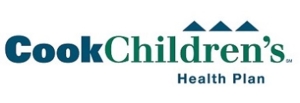
INTRODUCTION
Cook Children’s Health Plan (CCHP) is a non-profit, community-based managed care organization committed to serving Tarrant and surrounding counties in the Fort Worth area. CCHP is a subsidiary of the Cook Children’s Health Care System (CCHCS), which encompasses the Cook Children’s Medical Center, Cook Children’s Physician Network (CCPN), Cook Children’s Home Health and other affiliated companies. CCHCS employs 9,000 Texans (including the MCO’s 375 employees) and over 1,000 physicians, including 300 pediatric specialty care doctors. CCHP serves more than 150,000 Medicaid and CHIP Members and its annual premium revenue exceeded $700 Million this past fiscal year.
Financial Reinvestment and Other Contributions
The Cook Children’s Health Care System and its foundation have a strong history of reinvesting its dollars in its Providers, Members, and Community. Specific investments include:
- The construction and ongoing operational deficits of 7 Neighborhood Health Centers are designed primarily for the Medicaid population in low-income communities in the service area. These Health Centers provided more than 125,000 in 2019, including over 5,000 during extended hours.
- A foundation established Center for Children’s Health, with an annual budget of $3 Million, that focuses on programs of oral health, adverse childhood events, safety, child abuse and neglect, as well as completing the Premier Community Health Needs Assessment for children in the area every three years.
- Providing equipment, real estate, and uncompensated care at the regional pediatric specialty clinics in Abilene, Amarillo, Midland, San Angelo, Tyler, and Waco. These clinics encounter patients requiring specialty care in areas such as cardiology, genetics, endocrinology, neurosurgery, urology, and oncology.
Value and Quality
The Cook Children’s has a strong history of reinvesting its dollars in its Providers, Members and Community. Specific investments include:
- The construction and ongoing operating expense of seven Neighborhood Health Centers are designed primarily for the Medicaid population in low-income communities in the service area. These Health Centers provided more than 125,000 primary care visits in 2019, including over 5,000 visits in the evenings or on weekends.
- Cook’s Center for Children’s Health, with an annual budget of $3 Million, delivers programming to address oral health, adverse childhood events, safety, and child abuse and neglect. It also conducts the region’s most comprehensive Community Health Needs Assessment for children every three years.
- Providing equipment, real estate, and uncompensated care at regional pediatric specialty clinics in Abilene, Amarillo, Midland, San Angelo, Tyler, and Waco. These clinics encounter patients requiring specialty care in areas such as cardiology, genetics, endocrinology, neurosurgery, urology, and oncology.
COVID-19 Response
As the City of Fort Worth and surrounding area were being affected by Covid-19, Cook Children’s responded with their characteristic community care and swift action in this time of unprecedented need.
- Cook Children’s allocated several million dollars to refresh a vacant long-term acute care hospital in case it was needed in Fort Worth for COVID patient activity
- Cook Children’s markedly increased support for family and Member assistance needs in the areas of housing, electricity, food, and uncompensated care
- CCHCS kept all staff on full payroll through the end of September 2020 despite significantly reduced patient volume and revenue
- CCHP also provided much-appreciated payment advances to physicians to sustain operations in the early phase of the pandemic
- Service coordinators reached out to more than 9,000 special needs children to address their acute needs, and transported specialists as necessary
Cook Children’s investment in telemedicine and advancements in technology enabled them to meet the growing pandemic-fueled needs for virtual primary and specialty patient care. In particular, Cook Children’s physicians have used telehealth to connect patients, families, and their local doctors in rural Texas communities to the health care team at Cook Children’s. Patient families can virtually connect to specialists in real time without having to travel, and each of Cook Children’s specialty clinics is staffed with specialized diagnostic equipment that allows physicians to virtually examine patients.
As a result of COVID, John Peter Smith (JPS) Hospital’s School-Based Clinics were forced to close in mid-2020 and did not re-open for the 2020-2021 school year. These clinics provided over 42,000 patient visits the previous year, most of whom were children covered by Medicaid or CHIP.
- Cook Children’s Health Plan and physician group leaders worked to identify and assist Members who needed to find a new medical home.
- CCPN added additional pediatricians to several of their Neighborhood Health Centers to pick up much of the activity that had been occurring at the now-closed clinics.
- The location of Cook Children’s 8th Neighborhood Health Center (opening in FY22) was determined in part by the access-to-care issues created by the closure of the JPS Clinics.
Cook Children’s also makes sick care available to these schools through their expansive telemedicine capabilities.
In response to an increase in the number of suicide attempts, Cook Children’s developed and implemented the JOY campaign to create awareness and prevention of youth suicides.
Community Commitment
Cook Children’s Health Plan is rated higher than their competitors in overall satisfaction, and over 92% of Providers would recommend them to other practices. This managed-care organization has piloted several programs that show its unique ability to step in and help the community, with assistance ranging from providing solutions, research, care managers, doctors, to creating task forces of specialty care for at-risk children.
In 2017, Cook Children’s joined Tarrant County Judge Glen Whitley, Fort Worth Mayor Betsy Price, Tarrant County Commissioner Roy Brooks, John Peter Smith Hospital CEO Robert Early and leadership of Read Fort Worth to create the ACEs Task Force.
Tackling Adverse Childhood Experiences (ACEs), this task force focuses on children who live with traumatizing adversities such as domestic violence, child abuse and neglect, parental incarceration, and caregivers with addiction or mental illness. These children suffer much higher rates of chronic health conditions, lower school and adult success, and lower life expectancy.
However, by ensuring that these children and families live in supportive communities, the impact of ACEs can be reduced. With guidance from all sectors of the community, the ACEs Task Force piloted a parent-oriented, community-driven solution that reduces the impact of adversities across the entire County, while also concentrating considerable efforts in the Stop Six community and the 76105 zip code.
- The Stop Six/76105 community was selected as a focus area for the ACEs Task Force in response to data analysis identifying the community as an area of high need and a potential hot spot for child abuse and neglect.
- Additionally, reading scores from Fort Worth ISD showed that the elementary schools in the community (schools that feed into Dunbar High School) have some of the lowest third-grade reading rates in the district.
- Third-grade reading rates are important because they have been shown to correlate with high school graduation rates, which is critical to long-term success. Also, a child’s inability to read on-level by third grade could be an indicator of early life stressors that impacted their ability to learn.
In 2019, Fort Worth Housing Solutions decided to demolish and replace the Cavile Place Apartment complex serving low-income families.
- Through its participation on the ACEs Task Force, CCHP identified that a large number of its Members lived in these apartments and were being displaced.
- CCHP Care Managers were engaged to help these families locate new medical homes for their children and access other important community resources during this displacement.
- CCHP continues to maintain contact with the families who have remained in the Service Area, as well as participate in two of the action teams (Health & Wellness and Early Learning) funded by the federal Housing and Urban Development (HUD) Choice Neighborhood grant’s redevelopment of the Cavile Place complex.
Cook Children’s Health Plan sponsors and collaborates with community based organizations that serve families in need, including the Boys and Girls Club, Tarrant Area Food Bank, Center for Children’s Health, Tarrant Department of Public Health and Parents As Teachers Fort Worth ISD.
Service Area:
Counties: Denton, Hood, Johnson, Parker, Tarrant, Wise
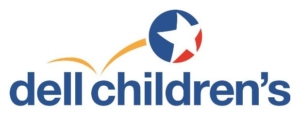
INTRODUCTION
Dell Children’s Health Plan (DCHP) is a non-profit, community managed care organization committed to serving Central Texas, including Travis, Williamson, Burnet, and several other counties. The MCO serves 117,000 Texas Members.
DCHP and Dell Children’s are part of the Seton Healthcare Family owned by the nation’s largest non-profit healthcare system, Ascension. Seton operates more than 100 clinical locations. Dell Children’s is one of four teaching hospitals that serve as training sites for Dell Medical School at the University of Texas. The system employs over 12,500 Central Texans.
The Ascension Seton System distributed $409.9 Million in Charitable Care, according to the 2018 Ascension Texas Report.
Value and Quality
DCHP offers free benefits to its Members such as free car booster seats, bike safety helmets, YMCA and Boys & Girls Club memberships. They provide debit card dollars as incentives for completing wellness visits, and a program called Taking Care of Baby and Me for pregnant women and new moms. They provide a large network of doctors and specialists for families in the area.
COVID-19 Response
In 2020, DCHP responded to the COVID pandemic crisis by assessing social determinants of health and sending information to all physicians with patients and members likely to have complications associated with positive covid test results.
They provided information to their members and extended membership enrollment to protect Members from losing their medical coverage.
Service Area:
Counties: Bastrop, Burnet, Caldwell, Fayette, Hays, Lee, Travis, Williamson
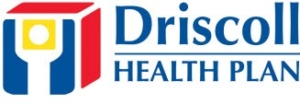
INTRODUCTION
Driscoll Health Plan (DHP) is a non-profit, community managed care organization committed to serving South Texas Nueces and Hidalgo counties and is headquartered in Corpus Christi.
DCP:
- employees 475 Texans
- serves 210,836 members, including 7,292 CHIP Members.
DHP is part of the Driscoll Children’s Hospital System, which has over 1,700 employees. The plan covers more than 25,000 square miles, including rural areas in the Rio Grande Valley.
Financial Reinvestment and Other Contributions
Driscoll has a strong history of reinvesting its dollars in its Providers, Members and the Community. They serve a rural area in South Texas and have implemented unique strategies to bring excellent care to an underserved community.
- Driscoll flies pediatric physician subspecialists to Brownsville, Harlingen, Laredo, McAllen, and Victoria to see patients in their communities. There have been over 900 flights in the past few years.
- DHP invested $27 Million in a Maternal Fetal Medicine program.
- They maintain 365/24/7 pediatric Sub Specialist call coverage program to support South Texas primary care physicians.
- Over $12 Million was invested in pediatric primary care physicians to improve access to care and improve the quality of care for members.
- They invested in new computer systems to provide near real-time access of medical records across its hospitals, clinics, and physician partner offices.
Value and Quality
Driscoll Health Plan’s Member satisfaction scores reflect performance in the top quartile across South Texas. They employee a Community Engagement Team to provide health education and connect South Texans to assistance resources. DHP plans to significantly grow this program in 2021 and 2022. They have established High Risk Pregnancy service coordination, which has enabled Driscoll to help in a myriad of ways, including:
- Avoiding $423 Million in NICU costs
- Reducing pre-term delivery of infants by over 36% since 2009
- Decreasing unnecessary C-Section deliveries by 13% over 5 years, and decreasing traumatic births by 75%.
Reducing elective inductions prior to 39 weeks of gestation from 30% to 2% over 10 years.
COVID-19 Response
This year, South Texas was deeply affected by the Covid-19 pandemic. Driscoll Health Plan’s emergency preparedness program has helped countless South Texans deal with this health crisis, just as they did during the recent Hurricane Harvey disaster. They acted quickly, coordinated services, making their Members needs the plan’s highest priority. Examples of the activities DHP undertook include:
- Implementing telehealth and other avenues to maintain connection between patients and Providers. DHP embraced telemedicine to improve access to pediatric specialists across Texas.
- Preserving Primary Care Provider (PCP) access using surveys and through advance Provider payments.
- Service coordinators reached out to over 10,000 special needs children to address their acute needs, and transported specialists as necessary.
- Identifying the Children’s Hospital in the Valley as a needed service area using Social Determinants of Health data to understand geographic needs and drivers.
Their parent health system has created strategic and operational partnerships with seven Level III NICUs in South Texas hospitals to benefit Members. The health plan and they health system have been working together to reduce technological “noise points” in near real time by working on a sophisticated process to connect members with local resources for assistance.
Driscoll has implemented several changes to their care models to give families and patients peace of mind. These modifications include:
- Implementing Code Dove: When Code Dove is announced via Driscoll’s PA system all staff stop what they are doing to practice hand hygiene and invite patients and families to join them in the process.
- Screening all visitors for symptoms before they are allowed into the hospital and clinics.
- Limiting the number of entrances to the hospital to help in the screening process of visitors.
- Decreasing and now ramping up procedures based on Governor Abbott’s and the CDC’s recommendations. Essential procedures continued to take place throughout the crisis and they are now expanding the procedures they will do while keeping everyone’s safety as the top priority.
- Designating a unit of the hospital with extra precautionary measures around infectious containment for patients with infectious respiratory illnesses.
- Expanding telemedicine reach to reduce exposure for patients, families and staff.
- Recognizing some patients are unable to travel and require in-person visits. Driscoll continues to fly its pediatric sub-specialists to clinics in Brownsville, Harlingen, Laredo, McAllen and Victoria.
- Implementing a “Fast Pass” for the most vulnerable patients, those with special needs such as cystic fibrosis, cancer and congenital heart disease that put them at greater risk for complications from the virus. The “Fast Pass” for quicker service allows them to bypass many of the normal admission steps.
- Modifying their visitation policy to prioritize everyone’s safety.
- Implementing Universal Masking for everyone coming into the hospital and clinics. If someone presents without a mask, they provide a mask for them.
- Continuing to meet or exceed all cleaning and disinfecting requirements and recommendations at our facilities.
Community Commitment
This plan is deeply ingratiated into its community, as reflected in their ongoing top tier treatment of members and providers. This plan’s excellence is reflected in their outstanding commitment to members and developing telehealth measures.
They work with Community Based Organizations and have initiatives that benefit members:
- Food banks
- School districts
- Driscoll Foundation
Service Areas:
Hidalgo Service Area
Counties: Cameron, Duval, Hidalgo, Jim Hogg, Maverick, McMullen, Starr, Webb, Willacy, Zapata
Nueces Service Area
Counties: Aransas, Bee, Brooks, Calhoun, Jim Wells, Karnes, Kenedy, Kleberg, Live Oak, Nueces, Refugio, San Patricio, Victoria

INTRODUCTION
El Paso Health Inc. (EPH) is a non-profit, community managed care organization committed to serving El Paso and Hudspeth Counties. The MCO employees 144 Texans and serves 83,245 Medicaid and 6,812 CHIP Members. EPH is part of the El Paso County Hospital District System, which has over 3,800 employees.
The system encompasses:
- 1,500 physicians
- The University Medical Center
- The El Paso Children’s Hospital
- Two foundations
- Two urgent care centers
- Over 60 clinics and free-standing ERs
- The Physical, Occupation Speech Therapy Center of Excellence.
Financial Reinvestment and Other Contributions
EPH has a strong history of reinvesting its dollars in its Providers, Members and the Community:
- Developed a Child Psychiatrist Pilot Program to fill a significant care gap in the El Paso Area Provider base. There are under 10 psychiatrists in El Paso with waiting lists of four to six months. Using Profits from their Alternative Payment arrangements with their Providers, EPH helped to recruit a board-certified child psychiatrist, increasing the caliber of care Members can receive and improving access for its Members. EPH did this in collaboration with one of the largest providers in their network.
- Establishing the Physical, Occupation and Speech Therapy Center of Excellence in one of the busiest parts of town. As a sponsoring partner, EPH partnered with the Children’s Hospital to create the Center and has made a five-year commitment to its success.
- Reinvested $50 Million rather than taking those dollars as profit from Alternative Payment arrangements with their network provider base.
- El Paso Health was among the first to establish a pediatric night clinic in El Paso. Expanding hours and thereby increasing access has saved an estimated $30 million in avoided ER visits.
Value and Quality
EPH is ranked as a 5 Star Plan across the board, one of only two plans to achieve this distinction. Providers rank them above 90% satisfaction in almost every category (source: SPH Analytics – Non-Profit Surveys). They received the highest performance in STAR in Experience of Care and Staying Healthy for STAR Children Report Cards, as well as vaccinations for children and teens. They also received the highest performance accolade in CHIP Report Cards in 7 out of 12 categories.
With a history of serving traditionally underserved populations, EPH focuses on correlations with high intensity service models. The results demonstrate that focus results in reduced expenditures with better health outcomes.
COVID-19 Response
This year the city of El Paso and surrounding counties has been extremely affected by Covid-19. El Paso Health responded with their characteristic community care and swift action in this time of unprecedented need.
El Paso Health came to the aid of their providers:
- Holding educational town halls
- Infusing cash where financial assistance was needed
- Paying their subscriptions for telehealth services. Providing this support allowed providers to continue cash flow into their practices by serving clients using telehealth services, while defraying the investment cost the service would otherwise cost.
- The telehealth platform, VeMiDoc, was developed by a local specialty physician.
They provided intense member support by modifying existing programs instead of canceling them, such as their youth engagement efforts and food drives. El Paso Health continues to give out items Members desperately need such as food, diapers, and car seats via drive-through events, always with an emphasis on safety. They further developed an informative social media presence. Members rely on social medial for communication and engage with EPH regularly. Younger Members particularly prefer interacting via social media and using FaceTime to interact with doctors, and any emerging issues are handled quickly with this new telehealth access channels.
Community Commitment
This plan is deeply ingratiated into its community, as reflected in their ongoing top tier treatment of Providers and Members. This plan’s excellence is reflected in their data-driven reputation and consistently strong quality report card scores.
Service Area:
Counties: El Paso, Hudspeth

INTRODUCTION
Parkland Community Health Plan (PCHP) is a non-profit, community-managed care organization that has been committed to serving Dallas County since 1999. The MCO employs 100 Texans and serves 180,000 Medicaid and CHIP Members. PCHP is part of the Parkland Hospital System, which has over 9,995 employees. The system encompasses 1 million members systemwide, nearly 3,000 doctors and clinics, and 25 hospitals and medical centers in the network.
Introduction
Parkland Community Health Plan (PCHP) is a non-profit, community-managed care organization serving Dallas County since 1999. The MCO employs 100 Texans and serves 180,000 Medicaid and CHIP Members. PCHP is part of the Parkland Hospital System, which has over 9,995 employees. The system encompasses 1 Million Members system-wide, nearly 3,000 doctors and clinics, and 25 hospitals and medical centers in the network.
Financial Reinvestment and Other Contributions
Parkland has a strong history of reinvesting its dollars in its Providers, Members, and the Community. PCHP has
- Provided the Parkland Funds Assistance, a tiered support program based on financial need. The assistance provides insurance coverage to 35% of Medicaid enrollees in Dallas County.
- Provided financial counselors at hospitals to work with patients to determine eligibility for different programs, an excellent educational and financial resource for vulnerable populations.
Value and Quality
Parkland has an exemplary reputation in research and in creating new technology based on the data. For example, zeroing in using zip code-based demographic data and targeting neighborhood blocks, PCHP has been able to respond to obstetric and asthma needs among its Members. Data-driven assessments revealed where there is chronic asthma and high medication usage. Parkland employed several strategies to address these trends in a successful effort to reduce future emergency room visits. Among the interventions employed was a teaming effort with the city to enforce housing codes in buildings with violations that created conditions known to trigger asthma. Following is a short list of examples of PCHP’s efforts:
- When possible, provide home-based services to address the environmental factors contributing to chronic asthma.
- Use claims information established criteria to manage high-risk pregnancies.
- Use a Socio-Needs Index score (SNI) to identify zip codes with the greatest challenges and opportunities to address health disparities.
- Measure socio-economic need based on zip code data calculated from six impactful indicators: 1) poverty, 2) income, 3) unemployment, 4) occupation, 5) education, and 6) language.
Patients and Members can gain access to helpful state programs such as Healthy Texas Women, CHIP Perinate, and BCCS. Pregnant women can deliver at Parkland Hospital, enter Parkland’s pediatric clinic, and ensure they have established a medical home during their pregnancy and for their child post-delivery.
Parkland’s KidsFirst CHIP plan ranks higher than its competitors with an overall 5-star score. They have the highest performance in CHIP in the categories of overall scores, and treatment of the common chronic condition ADHD. Parents also give high ratings to their children’s personal doctor.
COVID-19 Response
As with most of the country and our state, the City of Dallas has grappled with the burden of the COVID-19 pandemic and relied heavily on its public health infrastructure. Parkland worked diligently with its federal, state and local partners to assist its community. For example, Parkland worked with Dallas County and FEMA to establish both mobile and walk-up COVID testing sites in the very early days of the shutdown during Spring 2020. Other efforts included:
- Establishing convenient centrally located access sites — in the American Airlines Center.
- With their sister organization Parkland Center for Clinical Innovations (PCCI), they were able to apply PCCI’s data analytics capabilities to take zip code-specific approaches to target high-risk areas.
- Using heat mapping software that highlighted vulnerable populations (such as asthmatic or at pre-term birth risk), Parkland focused its resources and efforts in high-risk areas.
- Bringing testing to specific communities and used PCCI’s testing capabilities for faster results.
- Reducing ER visits with this preventative approach as well as reducing likely hospital and NICU stays.
As far as protecting its Provider network and employees, Parkland used alternative payment models (APMs) to protect furloughed employees throughout practice areas in Texas. They provided financial continuity to protect a huge portion of practices in their network and have focused efforts on creating innovative APMs for smaller practices and sub-specialties.
At the onset of the pandemic, Parkland partnered with Providers to develop APM arrangements for their organizations, designed to provide performance-based revenue opportunities. Parkland paid over $3 Million to Providers for achieving performance goals to address three categories:
- Member attrition
- Potentially preventable visits
- Out of network utilization
Parkland also is embracing long-term solutions such as telehealth, which will benefit its Providers and Members post-COVID. Telehealth solutions, with increased utilization, have proven to improve quality outcomes. Long term impacts include:
- The change from brick-and-mortar model has accelerated APM efforts allowing expansion to a fuller service continuum including behavioral health.
- Engaging Members through phone calls to enhance Member/patient receptivity by becoming a trusted resource. Using mobile phones as an engagement strategy has led to pushing appropriate and early treatment, addressing polypharmacy issues – all towards reducing avoidable ER visits.
During the first three months of COVID, Parkland estimates it had over 37 million views of its online content:
- Educational interviews with clinicians
- Radio and TV communications
- Social media posts
Service Area:
Counties: Collin, Dallas, Ellis, Hunt, Kaufman, Navarro, Rockwall
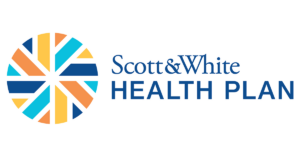
INTRODUCTION
Scott and White Health Plan (SWHP) is a non-profit, community managed care organization committed to serving communities all over Texas in more than 170 Counties. SWHP headquarters in Temple, and employees 480 Texans. They serve 40,000 Medicaid Members. SWHP is part of the Baylor Scott and White Health System (BSWH), which sees over 2.2 Million unique patients annually. The system is headquartered in Dallas and is the largest not for profit healthcare system in Texas, and one of the largest in the United States with 52 hospitals, more than 800 patient care sites, 760 physicians and over 49,000 employees.
Financial Reinvestment and Other Contributions
SWHP and its parent system has a long history of reinvesting its dollars in its Providers, Members and Community:
- Annually, BSWH provides $966 Million in Community Benefit dollars, including uncompensated care, medical education, research, social and wrap around services, and community health education.
- BSWH currently has over 83 ACGME accredited residency and fellowship programs across north and central Texas.
- The System has over 760 residents and fellows training in its facilities, including 243 in Temple, funded without state or federal dollars.
- Use contributions from 340 B Pricing, SWHP directs the savings for social work services in its headquarter city, Temple, Texas.
Value and Quality
SWHP is committed to reducing the financial burden on Members when possible, while pursuing growth as a plan. BSWH is a 5 Star Health plan for adults.
Investments in beneficial programs leading to health quality outcomes include:
- Opioid pain management guides are available to the general public and demonstrate a commitment to stopping substance abuse and addressing the opioid crisis.
- Drive through flu clinics are set up annually across the service area, including over 20 in the Austin / Temple regional corridor. Participants drive up, remain in their vehicle, and receives a vaccine, administered by a health professional.
- Extended hours at the Internal Pharmacy, operating until 12 AM for Member convenience.
Sponsor grants, patient cell phone plans, diabetes health and wellness clinics, and food pantries across the state.
COVID-19 Response
Member health and safety was at the top of Scott and White Health Plan’s priorities during the COVOD-19 Health Crisis. They reacted swiftly and came to the aid of Providers, Members, and their employees.
- The BSW System served as the largest US testing site and second largest in the world for testing the drug Remdesivir. They are also participating in multiple vaccine trials.
- They increased capacity to treat through digital modalities by 1,000% over the course of one week (in place by March 19, 2020). At the peak, more than 75% of their clinical encounters were done virtually. BSWH still conducts approximately 2,000 virtual visits daily, a majority of which are synchronous video. Patient satisfaction remains high.
- SWHP had been proactively incorporating digital health into its benefit design, allowing BSWH to have a built a solid telemedicine foundation since 2017.
- SWHP had begun covering e-visits for low-acuity care (sinusitis, upper respiratory infections, yeast and urinary tract infections, etc.) before many other health plans in Texas. This type of system integration allowed BSWH to successfully meet the needs of patients during the pandemic.
SWHP created special enrollment and premium grace periods for its Members. They offered a COVID-19 Special Enrollment Period (SEP) for fully insured groups, through April 20, 2020, which allowed an opportunity for uninsured employees (and/or dependents) to elect coverage outside of annual enrollment. They minimized the pandemic impact on front line workers, as workers donated compensation to fellow employees. Baylor Scott and White System and Scott and White Health Plan worked seamlessly together during COVID-19 to care for their employees and members by transferring employees among and between systems to support hospital and clinic sites. They also provided financial assistance to Providers and monitored changes to ensure positive patient/Member impact.
The entire system also focused its efforts with an excellent response in the area of testing.
- At one point during the pandemic, BSWH was testing one in every 10 Texans due to their own internal labs, which allowed them to quickly scale and provide results.
- BSWH average test turnaround time is less than 24 hours and they have completed approximately 350,000 tests as of late fall 2020.
- They waived member cost-sharing for care related to COVID-19, including testing, telehealth services, outpatient office visits and inpatient hospital stays.
- Cost-waiving applies to fully insured Commercial and Medicare Advantage Members, and self-funded customers may also elect to implement this coverage for their employees.
- COVID-19 lab tests are currently priced at $90, but they have partnered with insurance providers to ensure that covered patients who are given a COVID-19 lab test at a BSWH facility will not owe any money out-of-pocket for their test (e.g., copays, coinsurance or deductibles).
- BSWH offers free COVID-19 screenings to help patients determine whether further testing is necessary and had completed over 380,000 screens as of late fall 2020.
Community Commitment
SWHP and their parent system is a trusted leader, educator, and innovator in value-based care delivery. They prioritize customer experience, and affordability, and community integration. Among the most impactful ways they benefit their community is its annual Connecting the Dots symposiums. BSWH sponsors the event and invites its competitor hospital system and payers to participate, with a focus on furthering collective knowledge and community connectedness for all.
These Symposium community events take place in Dallas and Temple, and benefit over 75 organizations in the following categories:
- Faith based institutions
- Mental health authorities
- Local governments
- Local universities
The objectives of the symposium are:
- Build meaningful and purposeful connections among the people and organizations that make referrals and those that receive them.
- Synergize, synchronize and strategize to build networks that better meet the clinical and social needs of patients in its communities.
- Facilitate and encourage interaction and innovation among symposium participants through case studies and round-table sessions.
While a range of issues are discussed every year, the 2020 event focused on niche populations. Participants and presenters looked at collaborations and frameworks that could address needs in populations such as LGBTQ, homeless, veterans, and human trafficking victims.
Previous years symposiums have focused on health literacy and equipping frontline staff with tools and techniques to address the whole persons’ needs. The symposiums are largely regarded as a strong source for connecting community and sharing resources.
Service Area:
Counties: Bell, Blanco, Bosque, Brazos, Burleson, Colorado, Comanche, Coryell, DeWitt, Erath, Falls, Freestone, Gillespie, Gonzales, Grimes, Hamilton, Hill, Jackson, Lampasas, Lavaca, Leon, Limestone, Llano, Madison, McLennan, Milam, Mills, Robertson, San Saba, Somervell, Washington
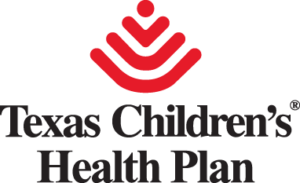
INTRODUCTION
Texas Children’s Health Plan (TCHP) is a non-profit, community managed care organization founded in 1996 by Texas Children’s Hospital as the nation’s first health maintenance organization created just for children. TCHP serves eastern Texas, including Harris and Jefferson counties. The MCO employees 900 Texans and serves 486,000 Medicaid and CHIP Members. Texas Children’s is part of the Texas Children’s Hospital System, which has over 1.9 million employees. The system encompasses 9 specialty care locations, 3 stand-alone pediatric hospitals offering 40 sub-specialties, and one of the world’s first research institutes dedicated to childhood neurological diseases. Texas Children’s is consistently ranked among the top 4 children’s hospitals in the US News and World Report and has received several accolades for being a great place to work.
Financial Reinvestment and Other Contributions
Texas Children’s has a strong history of reinvesting its dollars in its Providers, Members and the Community:
- Invested more than $30 Million and reinvested profits from Medicaid to build the Centers for Children and Women in locations identified to have higher than average emergency room visits. They met this gap in available providers with large clinics to meet the needs of members. The clinic is specifically designed for Texas Children’s health plan and provides necessary OB care, dental, after hours care, labs, and speech therapy.
- Supported Urgent Care clinics in 12 neighborhoods in need, resulted in lowering the total cost for the Medicaid program, lower ER utilization, and lower cost options for Members.
- Charitable Contributions:
- Community health re-improvement: $3.5 Million
- Health education residence: $28.6 Million
- Research Lab Science: $55 Million
- Donations support: $3.2 Million
- Subsidized healthcare services: $4.8 Million
Value and Quality
Texas Children’s has made technological investments to benefit their Members and community. They developed a data driven system to help needy patients, based on their location, triggering events, and overall condition. They have developed a targeted clinical response for emergency events. This response consists of a Mission Control Dashboard that assesses Members currently in their system. The care coordination team receives Real time data, which helps the team streamline care choices and focus. As a result, when a Member presents at the emergency room, the care team can coordinate the entire continuum of care for the Member using real time data.
The Center for Child Health is an ongoing research arm within the organization that develops strategies for social determinants of health based on Member data. Similarly, the Machine Learning Project is an implementation of the data gathered from the health plan and system at large, applied to increase predictive capabilities. Specifically, the project has run machine learning on Members who are likely to be noncompliant with certain HEDIS measures, such as welfare visits. They have run machine learning studies to predict which Members are at risk of losing coverage. In both cases, the Center is able test targeted interventions to determine whether or not intervening makes a positive impact.
Additionally, Texas Children’s has created pilot programs for health quality creation. These programs benefit a variety of Members and cover areas such as pregnancy, pre-natal care, in-home diabetes testing, food programs for members with food insecurity, and substance use disorders. They support organizations for the treatment of opioid use disorder in pregnant and post-partum women by paying for their care, or by identifying a community health worker to meet with them and coordinate additional resources.
COVID-19 Response
Texas Children’s used their amazing track record with their incident command centers to respond quickly and strategically to the COVID 19 Pandemic. The health plan went to its command center structure, led with a daily executive team meeting to guide the plan through frequent changes in telehealth options, Provider networks, operational hours, and care coordination. They strategically assigned the marketing team bilingual staff to contact a vulnerable population of over 10,000 Members in need of contact and information. In addition, vulnerable populations in rural areas received education and resources via porch drop-offs.
TCHP began using telephone only visits before the state approved it, ensuring that its Members were cared for quickly and didn’t experience loss of care. A telemedicine option for Members – AMWELL – was implemented system wide. Use of the AMWELL platform was in place prior to COVID and facilitated Providers seeing patients. Texas Children’s also worked to create incentive alignment between payment and reimbursement for telemedicine visits. Pediatric in-home therapy Providers didn’t lose increased reimbursements didn’t lose them during COVID, despite delivering their services via telemedicine. Texas Children’s was diligent in ensuring these Providers received their increased rate.
Community Commitment
TCHP works with their community and Providers to offer excellence in its service offerings and in the resources made available. They offer quarterly Texas Medical Association accredited Continuing Medical Education courses (CME) and educational activities to their Provider network. Facilitating life-long learning among Providers supports the best medical care for Members. The educational activities maintain, develop, and increase the knowledge, skills, and professional performance and relationships that Providers use.
TCHP sponsors club membership for community benefit, including the Boys and Girls Club in multiple locations in Harris, Jefferson, and northeast areas. These programs include character and leadership development, education, health and life skills, arts, fitness, and sports activities. Members ages 6-17 can apply for free membership and participate in any of these programs throughout the school year and in the summer. Soccer training clinics are also free to qualified members, ages 7-12 in Harris County.
TCHP collaborated with Aldine school district to provide students the opportunity to stay current on wellness vaccinations prior to starting the new school year, using a drive through model. Several families joined plan employees at the Center for Children and Women to take advantage of this opportunity to receive vaccines from the comfort of the car.
In their PCP Provider Survey, Texas Children’s received high marks, with 96% of respondents reporting that they would recommend this health plan. They are known for responsive Provider support. Survey results show much higher Provider scores as compared to their competitors Molina and Amerigroup. Texas Children’s shares top billing with United on Provider satisfaction scores.
Service Areas:
Northeast Texas Service Area
Counties: Anderson, Angelina, Bowie, Camp, Cass, Cherokee, Cooke, Delta, Fannin, Franklin, Grayson, Gregg, Harrison, Henderson, Hopkins, Houston, Lamar, Marion, Montague, Morris, Nacogdoches, Panola, Rains, Red River, Rusk, Sabine, San Augustine, Shelby, Smith, Titus, Trinity, Upshur, Van Zandt, Wood
Jefferson Service Area
Counties: Chambers, Hardin, Jasper, Jefferson, Liberty, Newton, Orange, Polk, San Jacinto, Tyler, Walker
Harris Service Area
Counties: Austin, Brazoria, Fort Bend, Galveston, Harris, Matagorda, Montgomery, Waller, Wharton
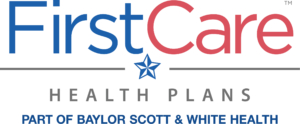
INTRODUCTION
FirstCare was founded in Amarillo in 1985 and remains Texas-owned and based. As a wholly-owned subsidiary of Scott and White Health Plan, FirstCare now adds the system-wide strength of the Baylor Scott & White Health to its Members and Providers in Lubbock and rural West Texas. The plan serves over 350,000 Members in 171 counties. FirstCare dedication is well known in its communities by its many community service projects, sponsored athletic events, and charitable causes.
Service Areas:
Lubbock and West Texas

INTRODUCTION
Sendero Health Plan was founded in 2011 and has sought to provide value-adding services to their Members and community that are not found in traditional for-profit health plans. They are committed to serving Travis County and surrounding counties, and are headquartered in Austin, Texas.
• Since its founding, Sendero has served over 120,000 members in central Texas
• Sendero’s members benefit from its substantial Provider network which is comprised of:
o 4,310 Physicians and Specialists
o 161 Ancillary Facilities
o 50 Hospitals
Value and Quality
Sendero is one of only two of the 17 STAR/CHIP Texas Medicaid Plans to receive an A Rating. They have received National Center for Quality Assurance (NCQA) accreditation, having proven their ability to support care that keeps Members at optimum health levels while balancing costs and regulatory and other purchaser requirements. The Austin American Statesman has awarded Sendero a Top Workplace four years in a row from 2017-2020.
COVID-19 Response
To address the impact of the Covid-19 pandemic, Sendero responded with characteristic community-focused care and swift action. The health plan supported its Members by:
- offering Covid-19 testing and treatment with no member cost share;
- waiving the cost of treatment and diagnosis to all Members – the first ACA health plan to do so;
- reaching out to over 1,000 high-risk Members and offering payment plans to Members facing financial distress from the pandemic.
- serving Members even when they were unable to make their premium payments.
- mailing 12,000 Covid Care Kits, and
- supporting Central Health-wide initiatives to distribute Covid-19 Kits to locally owned businesses in Travis County.
Sendero has made a long-term commitment to telemedicine, making eMD Access free for all Members. This commitment has yielded an increase in utilization throughout 2020. Their long-term commitment to using telehealth has become especially important during the Covid-19 pandemic Sendero also took special care of their low-income, formerly uninsured, high-risk Members (a population of over 500) through innovative partnerships with the local indigent care program. At the start of the pandemic, Sendero staff called these high-risk Members to ensure their safety and well-being. Staff calls also focused on familiarizing Members with the telemedicine benefit, thereby ensuring continual access to care.
Further, Sendero offered free prescription delivery using the larger pharmacy Providers and allowed for early refill and 90-day supplies for maintenance medications. They also extended deadlines for claims submissions and premium payments.
Sendero made great efforts in getting their Members vaccinated using a variety of strategies.
The Population Health Team undertook a series of community-oriented efforts. They distributed surveys, analytic projects, and an assessment of the role of social determinants of health on vulnerability to Covid-19.These qualitative assessments looked at the questions and concerns the community had regarding the vaccination. They assisted Austin Public Health with planning, education, and mobilization efforts. They hosted a Community Conversation on the equity gap in Covid-19 vaccine coverage with then Director of Austin Public Health Stephanie Hayden-Howard and Central Health’s Cynthia Valadez.
Additionally, the Member Services team scheduled vaccine appointments for those in need, and for other household Members even if those who were not Sendero members. They coordinated rides for Members without reliable transportation. Once they had contacted their highest risk Members, they expanded to other groups. From January to May 2021, the Sendero staff worked on-site to support patient intake process at mass vaccination clinics like Rosewood-Zaragoza and COTA Clinics.
Sendero assisted their Providers by:
- reimbursing telemedicine encounters;
- approving an additional 15-day claim filing extension, which included:
- suspending timely filing denials for initial and corrected claims for an additional 15 days
- suspending Level 1 claim reconsiderations for timely filing denials for an additional 15 days
Community Commitment
This plan is deeply involved with its community, as reflected in the high regard with which they hold and treat their Members and Providers.
They have hosted thousands of Member and community events over the years such as:
- Spring and Fall Outdoor Movie nights with health information and fun for families
- Principle partner and sponsor for “Boo the Flu” – Annual event featuring free flu vaccines and resources for the uninsured and underserved in the month of October
- Field trips for children from 12 different Title I schools, paying for the transportation and admission at several different museums and education centers.
- Free diaper programs, birthing programs, and free baby showers for Members who are expectant or new mothers.
- Summer lunch program in partnership with the local food bank for area families
Sendero also supports their providers with assistance related to:
- Claims resolution
- Eligibility verification
- Utilization Management
- Reimbursement
- Member-specific issues
Service Areas:
Travis and Surrounding Counties
Travis, Hays, Bastrop, Burnet, Lee, Caldwell, Fayette, Williamson




